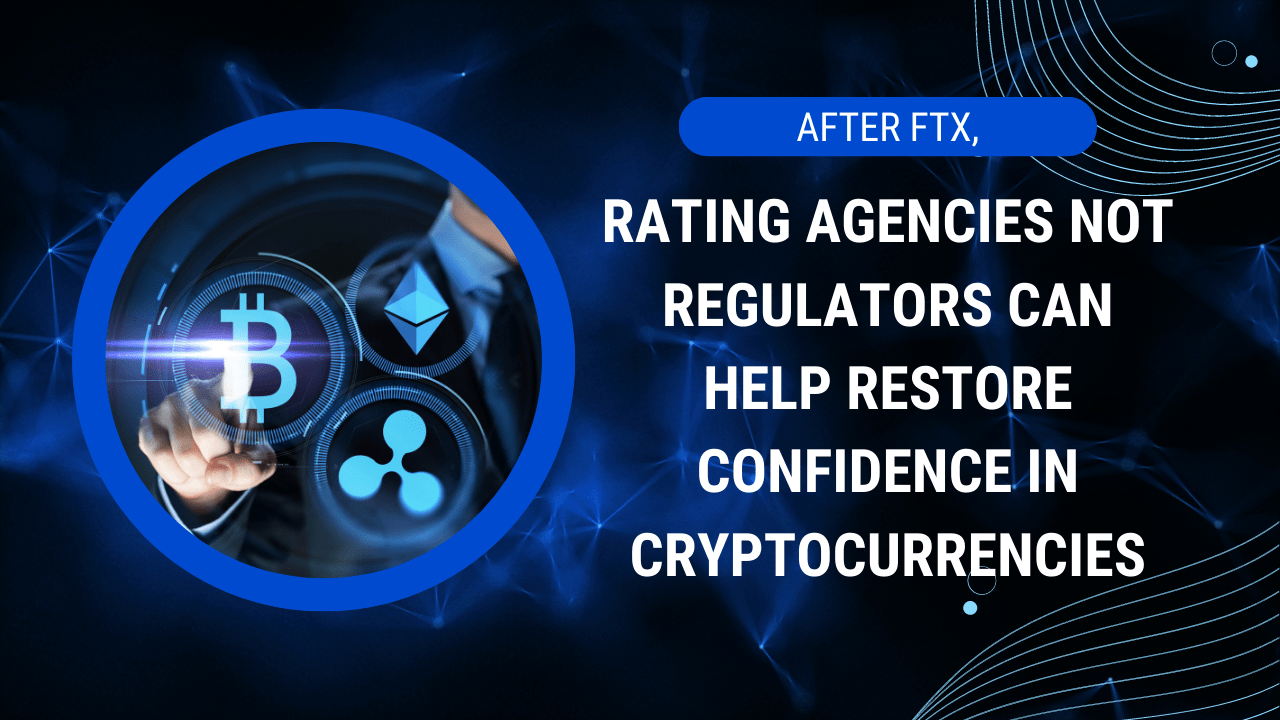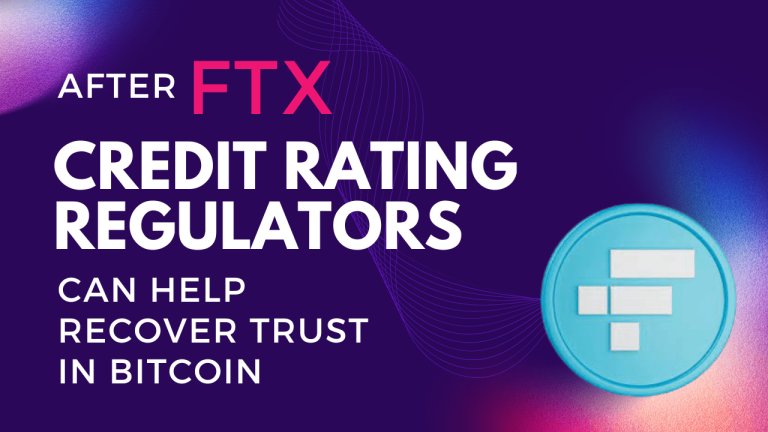After the FTX, rating agencies not regulators can help restore confidence in cryptocurrencies
The past year has seen a lot of action in the cryptocurrency market. When the Terra ecosystem and its TerraUSD (UST) algorithmic stablecoin crashed, $50 billion was immediately wiped from the market. FTX, a stock exchange that many thoughts were “too big to fail,” fell more recently. Dramatic events have occurred frequently in this area as well-known businesses and projects have disappeared along with investors’ money.
There is a lot of debate in the region over whether this is a good thing. Financial regulation exists to protect consumers from being exploited and conned by various financial operators and to enhance the overall health of the economy. And in many areas, the efficiency of the current financial restrictions varies substantially.
Furthermore, it is uncertain what kinds of restrictions might be implemented that would be advantageous for the sector and its clients.
The three main advantages of crypto rating agencies, which are community-driven organizations that evaluate projects, are outlined below, along with how they might address crypto’s problems.
Rating agencies can move as quickly as cryptocurrency
The cryptocurrency industry is dynamic and quick-moving. Between November 2021 and November 2022, about 2,000 new cryptocurrencies were created, increasing the total number of cryptocurrencies by almost 25%. New programs and tokens are constantly being introduced.
Even while some of the efforts that are emerging are innovative and push the boundaries of technology, there can be a lot of dangers for participants to manage. The cypherpunk theory, which promotes anonymity, served as the foundation for early advances in cryptography. But when you add this anonymity to a big consumer base that is frequently naive, it creates the perfect environment for fraud, con games, and pyramid schemes.
This could pose a challenge for regulators given how time-consuming it is to implement regulations. For the European Union, the Markets in the Crypto-Assets framework took more than two years to create and adopt. By the time new risks surface, it will be too late to review the situation and implement defenses.
Crypto rating agencies would be the complete opposite of this. They would pioneer innovation in the industry. They might provide customers with a relatively unbiased, open-minded study of the algorithms, structures, communities, risks, and rewards supporting various products at a quick rate commensurate with the introduction of these new products.
Some in the galaxy were aware of Terra’s flawed tokenomics, which ultimately contributed to its demise. People without backgrounds in tokenomics and quantitative finance wouldn’t understand it as well. Regulators also had little knowledge of Terra before its collapse, making it impossible for them to safeguard investors. Investors may quickly become aware of the fundamental problems in projects and decide whether they want to accept the risk by having experienced, reputable authorities examine cryptocurrencies and businesses in the field.
Before they generate issues, bad actors can be stopped
Regulations are placed in place to safeguard individuals and dissuade evil actors, but they don’t always work. And this applies to more than just cryptocurrency. Investors must steer clear of projects that violate the law because they will always exist in this field.
When we examine FTX, this becomes quite clear. The exchange committed to storing consumers’ money in a reserve that was completely backed. However, it was uncovered that FTX and Alameda Research improperly exploited investors’ money when the balance sheet of the sister business was made public. Users of FTX attempted to withdraw their money as a result. However, FTX was unable to reimburse subscribers because its reserves weren’t adequately backed. The laws in effect at the time should have prevented FTX from engaging in this fraudulent behavior, but they didn’t.
Rating agencies would serve as a deterrent to criminal behavior. They would be dependable, highly valued sources of information that provided in-depth analysis of the merits of various blockchain networks and did so at varying degrees of accessibility and detail. Additionally, they would help to lessen the crude oversimplification of cryptocurrency that is prevalent in the media and the abundance of false information that is available online. Rating agencies could give investors the knowledge they need to weed out dishonest players.
Rating agencies would be developed by and for cryptocurrency
The existing financial system favors affluent individuals and institutions. Ordinary persons who do not satisfy a minimum level of wealth or income in the United States are prohibited from becoming “accredited investors” by law. This means that a regular person must go via a third party, such as a bank or brokerage firm, to enter the stock market; these entities frequently charge a fee for access. Retail investors have less market freedom and access, and their gains are frequently shared with other parties.
Why the market is organized in this manner is a matter of debate. Why are the same people permitted to gamble away their life savings at casinos or purchase state-issued lottery tickets with obviously losing odds if the goal is to prevent people from being drawn into money-losing deals? It almost seems like the government has intended to forbid non-wealthy individuals from engaging in any type of gambling where they could have the chance to use discretion and judgment and truly have a chance of winning.
This current configuration might be reproduced in crypto without careful thought. Traditional financial authorities may enforce rules that already exist in the financial sector, such as the income requirement to qualify as an “accredited investor,” as was stated before. These arbitrary rules might be enacted in the name of protecting consumers, but they might exclude regular investors from the cryptocurrency market.
On the other hand, crypto-natives would establish crypto rating agencies with retail investors in mind. To provide investors with the best guidance possible, rating agencies must have a thorough understanding of the market. Additionally, rating organizations are merely recommendations rather than enforcers. The participants’ current liberties would remain intact, but with considerably better knowledge.
Regulators are paying attention to cryptocurrency, and new regulations will certainly be implemented shortly. But when they do, they’ll probably be out-of-date and useless. The crypto industry must act if it wants to advance, putting in place rating agencies that can make sure rogue actors are exposed and expelled from the community.
FAQS:
Q1. What cryptocurrencies are offered on FTX?
Spot Market FTX provided exposure to popular cryptocurrencies including Bitcoin, Ethereum, Binance Coin, Chainlink, and Ripple’s XRP by offering more than 100 distinct spot trading pairings.
Q2. Does FTX beat Coinbase?
If you want to minimize trading fees, especially if you’re a high-volume trader, FTX.US is preferable because it has some of the lowest rates available. It has a decent array of advanced capabilities but isn’t as user-friendly as Coinbase’s main platform.







